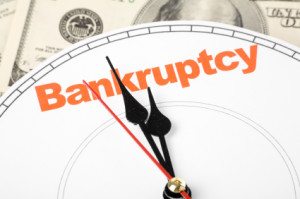June 2, 2015
 At present, owning a house has become a lot easier than before because of the prevalence of companies that offer loans with flexible terms and payment programs. Therefore, you can purchase your dream house just as long as you push the right buttons and make the right moves.
At present, owning a house has become a lot easier than before because of the prevalence of companies that offer loans with flexible terms and payment programs. Therefore, you can purchase your dream house just as long as you push the right buttons and make the right moves.
One way to achieve this is to apply for a home loan, because with this you can avail the necessary funding that comes with fixed interest rates andhas no ongoing fees. That’s value for money that you can never get elsewhere.
How do you avail the right home loan that will go well with your financial status? Read on and find out.
First, you should find a lender that offershome loans. The good news is: this is relatively easy because of the number of reputable companies out there that offer them. Plus, you can achieve this without leaving the comforts of your home because you can find a lender by doing an Internet search. You can look for building societies, like NPBS, talk to their loan officerto see if their home loan programs complement your needs, preference, and budget. Aside from the said institution, there is a wide array of companies out there that can help you avail your dream house.
Alternatively, you can check local bank and credit union websites to find out if they offer such program. If a local bank or credit union that is based in your area offers one, grab the opportunity and contact their loan officer. They’re generally more than willing to answer your queries and offer sound advice.
Once you’ve found a lender, you’ll have to study the application process. In general, this aspect is easy, but it may take some time. You’ll have to give your personal information and hand over paperwork that confirm your employment status and monthly income. After sending your application, company loan officer will check the authenticity of the documents and decide if your application will be approved or not.
If your loan application becomes approved, make sure to scrupulously review the terms and conditions before signing up. There are several factors that you need to consider and these include the interest rates, monthly payments, and penalties, among others. If you feel that they will not have a negative impact on your financial status, then sign the dotted line and avail your dream house.
Owning a house nowadays is a lot easier that it was, say, 10 or 20 years ago and you simply need to do your homework beforehand to avail the right loan that will not mess up your budget and credit rating. Afterwards, you can avail your dream home in no time at all.
Don’t overlook the precautionary measures that were elaborated above because neglecting this aspect may wreak havoc to your finances and bury you with debt. So, follow them and obtain your dream house and achieve financial stability in the process.
Tags:
budgeting,
Debts,
economy,
loans,
money,
mortgage,
personal finance
March 6, 2015
 Developing an effective and sound budget is truly important or crucial when you wish to achieve financial targets, control household costs and manage debts. A budget is the key ingredient to achieving financial goals, achieving household goals and managing debt successfully. Apart from this, by creating a budget you may pay off debt, buy a bigger apartment and get a better car.
Developing an effective and sound budget is truly important or crucial when you wish to achieve financial targets, control household costs and manage debts. A budget is the key ingredient to achieving financial goals, achieving household goals and managing debt successfully. Apart from this, by creating a budget you may pay off debt, buy a bigger apartment and get a better car.
A sound budget can only be developed when you understand your entire financial situation in a better way. You may experience a lot of challenges while creating a budget that suits your young family. In your attempt to develop a smart budget, you might wonder how to begin with it. Developing a budget is about identifying the starting point and the steps to go with it. There are a few good websites that may help you prepare an effective budget. In order to catch up with the best sites across major search engines, you may click on Check n’ Go•.
Consider a few budgeting tips that will keep you motivated –
1. Note all expenses
All of your monthly expenses need to be written in a notepad. Make a list of each single item that you purchase every month. Record all goods that you use on a daily basis, be it those ice creams that you keep on the refrigerator, your parking meter charges as well as your morning coffee.
Although it might seem tedious it will work in your best interest. Once the costs are itemized, you’ll need to go through the list and find which items are absolute necessities. You may try creating two categories namely discretionary and essential. You’ll certainly come to know how much you can actually avoid spending or save out of your list of expenses.
2. Exercise discipline
In order to stay within a tough budget, you’ll need to count on your means and exercise discipline and self-control. You must learn how to cope with the challenges of staying within a budget. There is a certain trick to get things done while staying within your budget. A budget resembles a diet; you’re bound to shed a few pounds once you start having lettuce leaves for about 7 days. You don’t need to live without fulfilling your daily necessities. For an occasional reward or treat, a certain allowance needs to be incorporated within your budget.
3. Set your targets
Set achievable targets. This way, you’ll be able to analyze each of your moves and proceed without committing mistakes. Meeting new targets will be easier once you reach your initial goals.
4. Use an online budget plan
You’re bound to come across a number of online budget planners that come for free. A majority of the budget plans are friendly towards their users. A budget planner helps you to measure the out flow of your money. Once you can measure your expenses, it will be easier for you to manage them.
5. Seek assistance
You may use free information available over the internet for maintaining or developing a budget. When it comes to promoting financial websites bearing quality budget tips, you may utilize sites like Check n’ Go•. Websites like this are aimed at educating people on budgeting and other financial areas.
Tags:
budgeting,
Debts,
Earnings,
economy,
money,
personal finance,
savings
February 8, 2015
 Filing for bankruptcy is a drastic step in regaining your financial health, and the impacts are long-lasting. It is not something to be done lightly, or without weighing out all of your available options. If you are drowning in debt, however, bankruptcy can be a valuable first step in rebuilding your financial future.
Filing for bankruptcy is a drastic step in regaining your financial health, and the impacts are long-lasting. It is not something to be done lightly, or without weighing out all of your available options. If you are drowning in debt, however, bankruptcy can be a valuable first step in rebuilding your financial future.
GetFreeOfBills.com notes that bankruptcy comes in two forms: Chapter 7 and Chapter 13. While Chapter 7 allows you to discharge most debts, Chapter 13 requires you to follow a structured plan to repay your debts under more favorable terms. Depending on the amount of disposable income you have, you might be required to file Chapter 13. Regardless of which type you file, however, the pros and cons are generally the same.
Pros
- Clean slate: A bankruptcy provides a clean slate. It effectively resets your credit to zero, except for the debts that cannot be discharged such as student loans, recent back taxes, and child support. It provides you with the opportunity to stop making costly payments and provides you with more money to live on each month.
- Opportunity to rebuild: Some people believe that bankruptcy prevents you from ever having credit again, but this is not the case. Many people manage to build new lines of credit shortly after their bankruptcy, and it gets easier as time passes. While it is true that bankruptcy remains on your credit report for 10 years, its effects gradually lessen.
- Stopping adverse collections actions: If you are being hounded by creditors, facing foreclosure, or afraid that your wages will be garnished, bankruptcy can be a psychological relief. When you file for bankruptcy, you will receive an automatic stay from the court. This forces your creditors to cease all adverse collections activities against you. If you have a bankruptcy attorney, he or she will also act as a shield, handling creditors on your behalf.
- Exemption laws: Your home and car are generally exempt from bankruptcy, as long as you continue to meet your payment obligations. You are also entitled to a cash value for personal possessions. If you have a significant number of luxury possessions, you might be required to sell some, but the exemptions are generally high enough to let most people keep their personal items.
- Job protection: Although some employers will not hire applicants with a bankruptcy on their credit report, the job you already have is protected. It is illegal for an employee to be fired for declaring bankruptcy.
Cons
- Damaged credit: Bankruptcy is a major hit on your credit report. In the immediate aftermath of the bankruptcy, you might be unable to get any new credit at all. Although it usually does not take long to get new offers, you will fall into a high risk category for lenders. Expect to pay interest rates that are significantly higher than the ones you had prior to your bankruptcy. However, if you are in the position of filing for bankruptcy, your credit is probably already damaged. Some people find that the credit hit is much less significant than they anticipated.
- Filing costs: Filing for bankruptcy typically costs a few hundred dollars, depending on your location. Attorney’s fees are billed on top of that. However, in most cases you can make a payment arrangement if you can prove that paying a lump sum would present a financial hardship.
- Embarrassment: Although it is surprisingly common, filing for bankruptcy still carries a certain stigma. Some people worry that their loved ones will find out and ultimately think less of them for their decision. However, bankruptcy typically comes at the end of a long journey through mounting debt. Most people understand that sometimes life happens, and do not judge their friends and relatives for making a tough financial decision. Besides, having your home foreclosed or your car repossessed is not exactly a less embarrassing option. When taken seriously and only as a last resort, bankruptcy can actually be the smartest choice for some situations.
- Exempted debts: Some debts cannot be discharged in a bankruptcy, including recent back taxes, child support, and student loans. In addition, most people choose to keep their mortgage and car loan, if applicable. However, discharging your other debts will create more available money each month, which can then be diverted toward paying your remaining obligations.
Bankruptcy is not for everyone, but it is the best solution for many people. Attorney David M. Often of Get Free of Bills understands the complex decision-making process that is involved in determining whether bankruptcy is the right choice for you. Contact his office today for professional advice on how to proceed along your journey to financial freedom.
Tags:
Bankruptcy,
Bankruptcy Laws,
budgeting,
Credit Card,
Credit Card Debt,
Debts,
Financial Panning,
Laws,
money
January 21, 2015
 Just as the name implies, a short term debt financing stands out as a financing form that involves a financial obligation a company has to fulfil in a shorter period of time when compared with regular financing options. In most situations we are talking about a maximum of 2 years, although 1 year financing is usually offered.
Just as the name implies, a short term debt financing stands out as a financing form that involves a financial obligation a company has to fulfil in a shorter period of time when compared with regular financing options. In most situations we are talking about a maximum of 2 years, although 1 year financing is usually offered.
Many companies opt for short term debt financing because of the fact that they want to have more working capital available or it is possible to need more money as day-to-day operations need more cash. Cyclical operation conditions or companies that are faced with international trade need such financing in various situations.
According to Today’s Growth Consultant Reviews, there are 4 types of short term debt financing that you can consider:
This is basically an instant credit extension offered by the lending institution. As a company gets the overdraft agreement, it can transmit or draw down cash from the account beyond the balance that is available. Credit amount will always depend on overdraft limits that are negotiated with banks. In this case the advantage is that you will only take out as much as you need for the operation activity when it is necessary.
A credit letter is basically a letter that comes from the bank and guarantees payments towards sellers. Sellers are guaranteed that amounts will be received during credit period. In this situation the advantage is that the company is usually going to be offered a better overall credit term when dealing with a supplier.
These are loans that have to be repaid in a short period of time, together with the associated interested. This is a loan that is not revolving and usually has a completely fixed repayment period. A company can use it in order to gain more liquidity as working capitals are lower or are necessary (for instance, for paying creditors or buying stocks).
This document will bind a party to pay an amount of money at a fixed rate to the secondary party at a specific date. In most cases this is a bill that appears when dealing with international trade. Exporters can grant a credit for the importer for the goods shipped with an exchange bill for the amount.
Short Term Debt Financing Qualification
In order to receive such financing you do not need to think about formal qualifying criteria. Usually, the company needs to hold a stronger business case that supports business viability and owner capital. A supplier can offer a short term credit for the purchases in order to enhance competitiveness. The bank will offer overdrafts and short term loans in order to earn an interest and build client relationships. To put it simply, if the company is transparent in operations and financials, there is a strong possibility that such financing would be offered.
Tags:
budgeting,
credit,
debt,
Debt Problems,
economy,
financial planning,
money,
personal finance
January 11, 2015
 In October 2014, the personal saving rate, the ratio of personal income saved to personal net disposable income, was only five percent in the United States. Americans are not known for being savers; the all-time high for personal saving ratio was 14.60 percent in 1975 which is lower than many developing countries.
In October 2014, the personal saving rate, the ratio of personal income saved to personal net disposable income, was only five percent in the United States. Americans are not known for being savers; the all-time high for personal saving ratio was 14.60 percent in 1975 which is lower than many developing countries.
The truth is, life happens and it can often be expensive. By building your savings into a nest egg, you will be better prepared for these developments.
A Nation of Spenders
Almost half of American households (44 percent) have no more than three months of expenses in a savings account, leaving them unprepared for medical, legal, or other emergencies. Many rely on credit which accumulates expenses through interest rates and in some unfortunate circumstances, late or missed payments.
The National Foundation for Credit Counseling conducts a survey every year on consumer financial literacy. According to the latest survey, 16 percent indicated that their emergency fund was insufficient. The same percentage also admitted to not having enough in savings to retire.
Saving Is Necessary
Relying on credit instead of stashing away money is a risky game. As your balances rise, so do interest rates and fees. Many people file bankruptcy because they do not keep up with servicing their debt.
As this pattern continues, credit scores drop but life does not stop happening. If a car needs brakes, a water heater blows up, or you get sued or face legal charges and need to pay criminal defense lawyer fees, this means having to find money quickly. A household that is liquid asset poor is also vulnerable to predatory lending that only deepens financial insecurity.
Get Started
The economy is unpredictable and only a healthy savings account ensures stability. The time to develop this habit is now. Here are suggestions to get started:
- Start Small. Even if you only transfer $5.00 from every paycheck into savings account, it is better than nothing. The trick is to make this a habit and putting aside a small amount will accomplish that. You will likely increase this amount later, due to the satisfaction of saving.
- Set a Goal. A $1,000 emergency fund covers most every day emergencies like car or home repairs. While legal fees and medical bills could easily wipe out a fund of this size, $1,000 is a good goal to start saving. Break it into two $500 goals if that seems more feasible.
- Schedule Automatic Transfers. Some employers offering direct deposit will allow you to split your paycheck into two accounts. If that is possible, arrange a certain amount for your savings account. Otherwise, set up an automatic transfer from checking to savings at each pay period so the saving process occurs despite any lapses in discipline.
A nest egg means an emergency becomes an inconvenience instead of a disaster. If you are relying on credit or living between paychecks, take it as a sign to change your financial habits. Rather than mull over your mistakes, take action today to start a good savings plan.
Tags:
budgeting,
Credits,
Debts,
financial planning,
money,
personal finance,
savings
 At present, owning a house has become a lot easier than before because of the prevalence of companies that offer loans with flexible terms and payment programs. Therefore, you can purchase your dream house just as long as you push the right buttons and make the right moves.
At present, owning a house has become a lot easier than before because of the prevalence of companies that offer loans with flexible terms and payment programs. Therefore, you can purchase your dream house just as long as you push the right buttons and make the right moves.




Recent Comments